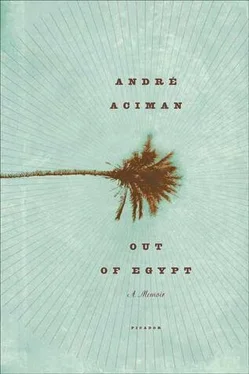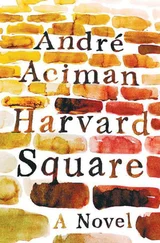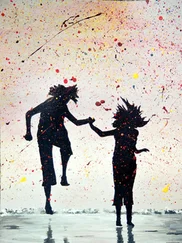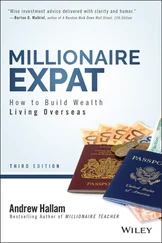“The sun burst on the flawless brimming sea into a sky all brazen.”
It was Signor Dall’Abaco quoting Homer in Greek and then translating into Italian. This, I suddenly realized, must be the sunlight of ancient Greece, of translucent Aegean mornings where glinting quartz extends for miles until it touches the sea, and the sea touches the early-summer sky, and the sky touches every tree and every hill and every house beyond the hills. Today, too, all I need is the presence of water nearby, a clear sky, and intense glare forcing me to look down, and suddenly, wherever I am in the world, my mind will inevitably drift to the most sunlit author of antiquity, only to remember how I encountered him for the first time at Mandara that morning when we trundled back, spilling ful along the sand dunes. Signor Dall’Abaco told us how Ulysses’ companions, after eating of the forbidden lotus, had lost all desire to go back to Ithaca and refused to wander more. After twenty years, he said, Ulysses was the only one who made it back alive.
“Again with your Ulysses!” exclaimed Roxane.
“Or so they say,” continued Signor Dall’Abaco. “Dante teaches that, after returning to Ithaca, he went on to explore other lands. Many agree. But I think it is Cavafy, the Alexandrian, who is right. He says that Ulysses wavered, unable to decide between going back to his wife or living as an immortal with the goddess Calypso on her island. In the end, he opted for immortality and he never went back. As the goddess pleads,” and Signor Dall’Abaco began to recite,
Why spurn my home when exile is your home?
The Ithaca you want you’ll have in not having.
You’ll walk her shores yet long to tread those very grounds,
kiss Penelope yet wish you held your wife instead,
touch her flesh yet yearn for mine.
Your home’s in the rubblehouse of time now,
and you’re made thus, to yearn for what you lose.
The story of a man who chose his mistress and immortality over wife, child, and home infuriated Roxane. Signor Dall’Abaco simply arched his eyebrows and shrugged his shoulders, as if to say who was he to argue with poets. I asked him to recite more verses by Homer. He did.
For the first time in my life I knew exactly what I wanted to do this summer, and every other summer after that. I asked Signor Dall’Abaco if he would be willing to teach me Greek. Delighted, he said, but only after Italian class — and still, it might take years. “But then, who knows,” he said with a smile, as we opened the old gate to our garden.
Signor Dall’Abaco taught me Greek for five years, slowly, sedulously, the way an impoverished Sicilian schoolteacher in Siena had taught it to him years before. After we left Egypt, he continued my Greek lessons by correspondence, selecting passages that I would always translate a bit hastily and with a sense of guilt and obligation. Ten days later, sometimes a little more, I would receive his dishearteningly elaborate and messy comments around my sheet of paper, which now reeked of cigarette smoke from his favorite café, where he liked to scribble— scribacchiare. He would place numerals above most of my words in Greek, the way Aunt Flora put numerals on her students’ score sheets, to indicate the preferred order of the words. When he could not decide which word was best, he would list every Greek synonym that crossed his mind. Reading his letters in my room in Massachusetts years later, I conjured the aging Signor Dall’Abaco writing his eight-page bulletins in small script as he sat and smoked at a small table at Athinéos, overlooking the old harbor, known as Portus Eunostus, the port of good return. There he would translate Greek texts into Italian for me to translate back into Greek, though he knew that I knew that my Greek was growing progressively worse and that these exercises in translation had become nothing but an elaborate pretext for staying in touch. He would describe the city, the sea, the slovenly Cairenes who came up each summer, Roxane, and her husband, Joey, who had grown so fat and bald one wouldn’t know him, ending each of his letters with his immutable formula, “Now I must write,” meaning his other letters, those sent to his lawyers in Italy for a long-standing suit against the Italian government for the return of assets seized by the Fascists before the war. He would have settled for a pension, he used to say. In reply, I described my studies, women, the stuffy hot spells, the cucumber-and-feta-cheese sandwiches a fellow Italian and I ate on Oxford Street as we awaited a beach season that never really came. Lazem bahr, I reminded him.
“You have crossed the Pillars of Hercules,” he wrote back, “all is possible now!” I was the only human he knew who had gone to America. “But, ahimé !—never become a teacher, for then you’ll eat others’ bread and tread others’ stairwells.”
I stopped hearing from him. At first I thought it was just like Signor Dall’Abaco to decide it was time to stop pestering me with these fatuous exercises. But then he did not answer my second letter. Or my third. Or my Christmas greetings — of that year or the next. Then I too stopped writing. Perhaps I knew but didn’t want to know. I could have telephoned but I never did. Or perhaps I half-expected I would eventually receive a profusely apologetic letter signed by a man who for almost ten years had ended his letters with the same two words: Lazem scribacchiare.
Years later, I received a small parcel wrapped in sturdy, recognizable Third World paper. It had come by ship and the string that held the package together was riddled with knots and little lead seals. I did not know the handwriting. I opened it and found a small, cheaply bound book wrapped in wax paper. Alexandrians, edited by Mario Dall’Abaco: an anthology of Alexandrian writers from antiquity to modern times. Some of the poems I had never seen before; others were familiar; the one on Ulysses was Signor Dall’Abaco’s, not Cavafy’s. Not knowing whom to thank, I sent the printer a check.
A few months later I received another, slightly larger package wrapped in the same cobalt-blue paper, which I had failed to place the first time. Palming my way through the crumpled newspaper in the box, I expected to find more volumes of Alexandrians. Instead I touched something cold, like a palm waiting to touch my own. It was an old bronze knocker. “When we heard they were rebuilding Mandara, we immediately rushed to the villa and it was Mario himself who took it down. He used it as a paperweight. He would have wanted you to have it. He went peacefully a year ago. Remember me, your loving Roxy.” The knocker has never left me. It sits on my desk today.
When my father put down the receiver, he looked at us in the dining room and said, “It’s started.” No one needed to be told what he meant. It was common knowledge that these telephone calls came at all hours of the night — threatening, obscene, abusive calls in which an unidentified voice claiming to represent a government office asked all sorts of questions about our whereabouts, our guests, our habits, reminded us that we were nothing, that we had no rights and would soon be driven out, like the French and the British before us.
Until then, we had been spared these calls. Now, in the fall of 1964, they started. The voice seemed to know all about us. Indeed, it knew all our relatives abroad, read all our mail, named many of my friends and teachers at the American School, which I had been attending since leaving VC four years earlier. It knew everything. It even knew about the incident of the stone that day. “And I bet you’re enjoying quail tonight,” it said. “Bon appétit.” “A bad omen,” said my grandmother.
Читать дальше












